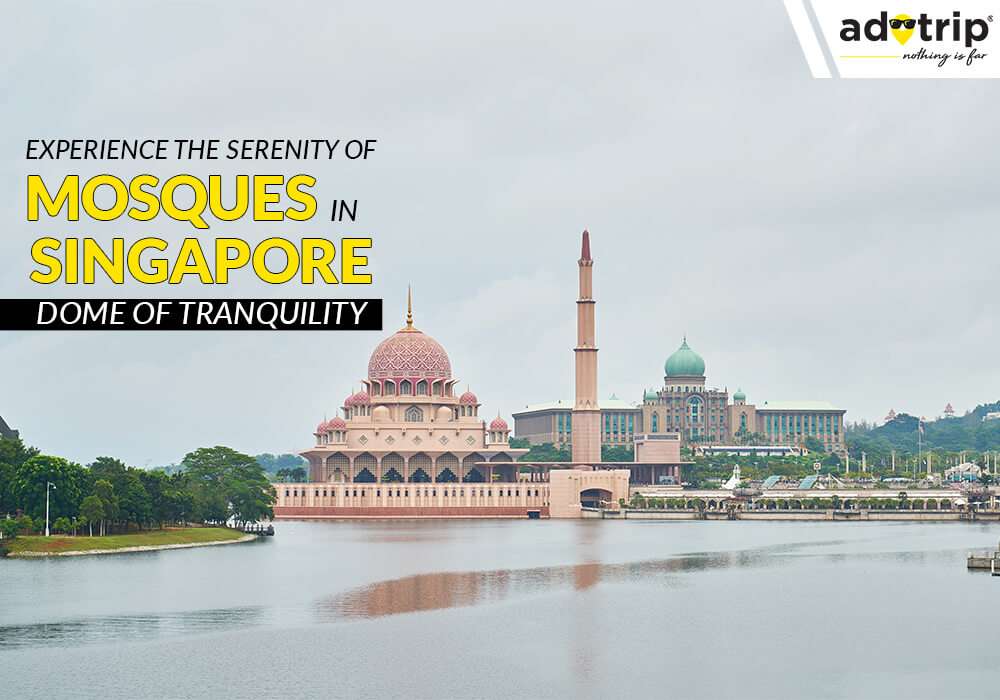
Last Updated At: 15-May-2025
Top 15 Mosques In Singapore | Must Visit In 2025
Singapore is a thriving metropolis with a rich cultural background, and the city's religious environment reflects this colourful tapestry. Visiting Mosques in Singapore are among the most significant sacred sites in the Muslim world. Furthermore, as places of worship, Singapore's mosques are hubs for community, educational, and social events. These mosques represent religious harmony and unity in the nation with their spectacular architectural styles and peaceful surroundings. They are essential in developing interfaith harmony and encouraging peaceful cohabitation between the various religious communities that call Singapore home.
List Of 15 Famous Mosques In Singapore
Given that Islam is one of the predominant religions in Singapore, the city-state is home to numerous stunning mosques. These temples of worship, which combine traditional and Islamic architectural forms, are also regarded as tourist destinations due to their stunning beauty. Here is the guide to Mosques in Singapore
- Sultan Mosque. Mosque in Singapore Located in Kampong Glam
- Masjid Al-Abrar. Known For its Unique Architecture
- Masjid Jamae. Oldest Mosques in Singapore
- Masjid Hajjah Fatimah. Historic Mosque in Singapore
- Masjid Maarof. Serves the Local Muslim Community
- Al-Iman Mosque. Muslims Gathered For Prayer
- An-Nahdhah Mosque. Islamic Place of Worship
- Hajjah Fatimah Mosque. Beautiful Architectural Details
- Malabar Muslim Jama'ath Mosque. Rich cultural heritage
- Abdul Gafoor Mosque. Stunning Architecture and Intricate Details
- Masjid Yusof Ishak. Golden Dome and Graceful Minarets
- Masjid Darul Ghufran. Mosque With Grand Entrance
- Masjid Al-Ansar. Sense of Community and Faith
- Masjid Omar Kampong Melaka. Exquisite Architectural Details
- Assyafaah Mosque. Modern Design and a Striking Dome
1. Sultan Mosque | Mosque in Singapore Located in Kampong Glam
In Singapore's Kampong Glam neighbourhood, the Sultan Mosque is a well-known representation of the city's diverse cultural heritage. The mosque was constructed in 1826, and its spectacular architecture displays classic Islamic features, including a golden dome and delicate decorations. Visitors from around the world come to this important religious and cultural hub.
- Major Highlights. A well-known Islamic monument in Singapore, Sultan Mosque is renowned for its lovely architecture, extensive cultural history, and lively community events.
- Location. 3 Muscat St, Singapore 198833
- Entry ticket. Free
- Timings. 10:00 am–9:00 pm
2. Masjid Al-Abrar | Known For its Unique Architecture
The South Indian Mosque, Masjid Al-Abrar, is in Singapore's Tanjong Pagar neighbourhood. It is significant historically since it was one of the nation's first mosques built in 1827. The mosque is a beloved religious and cultural monument in Singapore due to its distinctive South Indian architectural style, which stands out with colourful facades and elaborate patterns.
- Major Highlights. Singapore's Masjid Al-Abrar is well known for its historical significance, stunning architecture, and warm environment for worshipers and guests.
- Location.192 Telok Ayer St, Singapore 068635
- Entry ticket. Free
- Timings. 12:00 pm–8:45 pm
3. Masjid Jamae | Oldest Mosques in Singapore
In Singapore's Chinatown, Masjid Jamae, sometimes called Chulia Mosque, is a significant place of worship. It illustrates the close ties between Muslim and Chinese communities in history and culture. Search for popular ‘Mosques Near Me’ on a search engine, and you will surely find Masjid Jamae, a cherished place of worship and cultural heritage in Singapore because of its distinctive architecture, which combines Islamic and Chinese influences.
Major Highlights. The Masjid Jamae in Singapore's Chinatown is notable for its distinctive fusion of South Indian and Islamic architectural styles, which reflects the region's multiracial background and religious diversity.
- Location: 218 South Bridge Rd, Singapore 058767
- Entry ticket: Free
- Timings: 1:00 pm –9:00 pm
Also Read : Places To Visit In Singapore
4. Masjid Hajjah Fatimah | Historic Mosque in Singapore
A notable Islamic landmark can be found in Kampong Glam, Singapore, at the Masjid Hajjah Fatimah. It bears the name of its patron, well-known philanthropist Hajjah Fatimah. Architectural elements from Islamic, Malay, and European styles are combined to create the mosque's unique appearance. Because of its historical and cultural significance, it is a beloved Islamic Place of Worship in Singapore and represents a rich legacy.
- Major Highlights. Masjid Hajjah Fatimah is a famous mosque in Singapore known for its Islamic architecture and historical significance.
- Location. 4001 Beach Rd, Singapore 199584
- Entry ticket. Free
- Timings. Open 24 hours
5. Masjid Maarof | Serves the Local Muslim Community
Masjid Maarof is a peaceful mosque with stunning Islamic Architecture in Singapore and a welcoming neighbourhood. For Muslims, it serves as a centre of religion, conducting daily prayers and other religious activities. The mosque is a beloved prayer site for locals and visitors due to its warm atmosphere and dedication to promoting peace and enlightenment.
- Major Highlights. Masjid Maarof is a well-known mosque in Kuala Lumpur, Malaysia. It is renowned for its exquisite architecture and important place in the neighbourhood's Muslim population.
- Location. 20 Jurong West Street 26, Singapore 648125
- Entry ticket. Free
- Timings. 9:00 am–6:00 pm
6. Al-Iman Mosque | Muslims Gathered For Prayer
Al-Iman Mosque, located in Singapore, is a monument to both the concord of religions and the beauty of architecture. The mosque is well-known in the neighbourhood due to its magnificent minaret and dome-shaped building. It provides a warm environment for Muslims to pray, study, and partake in cultural events, creating harmony and understanding among the city's many believers.
- Major Highlights. In Oman, the Al-Iman Mosque is a revered place of worship and an important religious institution known for its rich cultural history.
- Location. 10 Bukit Panjang Ring Rd, Singapore 679943
- Entry ticket. Free
- Timings. 8:30 am–5:30 pm
Also Read : famous festivals of singapore
7. An-Nahdhah Mosque | Islamic Place of Worship
Singapore's An-Nahdhah Mosque is a thriving hub of Islamic spirituality and culture. Its remarkable modern style effortlessly combines with features of traditional Islamic architecture. The mosque serves as a hub for social, educational, and religious activities in the neighbourhood, which is vital to developing the Muslim community there. It serves as evidence of Singapore's dedication to religious harmony and diversity.
- Major Highlights. Singapore is home to the well-known An-Nahdhah Mosque, a Muslim prayer site. It is a masterpiece of architecture and the centre of the community's religious and cultural activities.
- Location. 9A Bishan Street 14, Singapore 579786
- Entry ticket. Free
- Timings. 9:00 am–6:00 pm
8. Hajjah Fatimah Mosque | Beautiful Architectural Details
A notable religious monument in Singapore is the Hajjah Fatimah Mosque. The mosque is historically and culturally significant because of its distinctive fusion of Middle Eastern and Indo-Malay architectural traditions. It is a visually arresting sight with its beautiful domes and minarets. Through various events, the mosque promotes community involvement while posing as a place of worship.
- Major Highlights. Singapore's Hajjah Fatimah Mosque is a revered place of worship renowned for its spectacular architecture and historical significance.
- Location. 4001 Beach Rd, Singapore 199584
- Entry ticket. Free
- Timings. 9:00 am-9:00 pm
9. Malabar Muslim Jama'ath Mosque | Rich cultural heritage
A prominent place of worship is the Malabar Muslim Jama'ath Mosque, which is situated in Singapore. Both residents and visitors are drawn to the mosque by its elaborate and colourful South Indian architecture. Organising prayers and cultural events plays a crucial part in the society and the Muslim community's spiritual lives.
- Major Highlights. Malabar Muslim Jama'ath Mosque has lovely traditional architecture and a sizable local following and hosts several religious and cultural events.
- Location. 471 Victoria St, Singapore 198370
- Entry ticket. Free
- Timings. 5:00 am–9:00 pm
Also Read : Famous Food Of Singapore
10. Abdul Gafoor Mosque | Stunning Architecture and Intricate Details
Singapore's Abdul Gafoor Mosque is a revered representation of Islamic heritage. Visitors are enthralled by its beautiful fusion of Islamic and Indian architecture. The mosque has a long history that dates back to 1859, and it continues to serve as a centre for Muslim spirituality by providing prayer services and promoting interfaith harmony through some neighbourhood projects.
- Major Highlights. Abdul Gafoor Mosque, a historically significant Islamic building in Singapore, is recognised for its exquisite architecture, cultural activities, and promoting interfaith interaction in the neighbourhood.
- Location. 41 Dunlop St, Singapore 209369
- Entry ticket. Free
- Timings. 1:00 pm–9:00 pm
11. Masjid Yusof IshakIshak | Golden Dome and Graceful Minarets
Masjid Yusof Ishak is a contemporary mosque with distinctive architectural features that is located in Singapore. The mosque, which bears the name of Singapore's first president, stands for harmony and diversity. It's modern facilities and community-centred activities significantly promote religious unity and cross-cultural understanding.
- Major Highlights. The large mosque Masjid Yusof Ishak, which bears the name of Singapore's first president, encourages harmony and spiritual development.
- Location. 10 Woodlands Dr 17, Singapore 737740
- Entry ticket. Free
- Timings. 5:00–7:00 am, 12:00–9:00 pm
12. Masjid Darul Ghufran | Mosque With Grand Entrance
Singapore's Masjid Darul Ghufran is a well-known mosque with a stunning modern structure. Since 1986, it has offered the Muslim community various religious and educational programs. The mosque actively participates in community outreach, encouraging diversity and developing a sense of community among its worshippers.
- Major Highlights. Masjid Darul Ghufran, a famous Islamic centre in Singapore, promotes a strong feeling of cohesion and faith by offering various services, including education, community outreach, and cultural events.
- Location. 503 Tampines Ave 5, Singapore 529651
- Entry ticket. Free
Also Read : best museums in singapore
13. Masjid Al-Ansar | Sense of Community and Faith
Masjid Al-Ansar in Singapore is a major place of worship for the Malay-Muslim population. It was founded in 1967 and has a lengthy history. Visitors are attracted to the mosque's architecture, which combines traditional and modern aspects. It provides a location for worship, instruction, and social events, fostering the spiritual and cultural development of the neighbourhood.
- Major Highlights. Masjid Al-Ansar, a notable Islamic worship site in Singapore, is well-known for its involvement in the local community and spiritual counselling.
- Location. 155 Bedok North Ave 1, Singapore 469751
- Entry ticket. Free
- Timings. 9.00 am to 5.00 pm
14. Masjid Omar Kampong Melaka | Exquisite Architectural Details
Singapore has a famous mosque with a rich history called Masjid Omar Kampong Melaka. It ranks as one of Singapore's oldest mosques. Admirers are attracted by the mosque's distinctive style, which highlights traditional Javanese architecture. It is still a major religious and cultural symbol for the local Muslim population.
- Major Highlights. A renowned mosque in Singapore, Masjid Omar Kampong Melaka, displays a fusion of Javanese and Moorish architecture and serves as a symbol of cultural variety and religious history.
- Location. 10 Keng Cheow St, Singapore 059607
- Entry ticket. Free
- Timings. 12:00 pm–9:00 pm
15. Assyafaah Mosque | Modern Design and a Striking Dome
The Assyafaah Mosque, located in Singapore, is innovative and modern. Its building was finished in 2004 and included stylish and eco-friendly architectural characteristics. The mosque regularly participates in social and educational projects that support neighbourhood cooperation and encourage visitors to understand Islam better.
- Major Highlights. In addition to significant community programming, educational initiatives, and promoting interfaith communication, the Assyafaah Mosque in Singapore also has a modern Islamic design, emphasising inclusion and understanding.
- Location. 1 Admiralty Ln, Assyafaah Mosque, Singapore 757620
- Entry ticket. Free
- Timings. 9:00 am–6:00 pm
Adotrip is the ultimate travel platform for exploring Singapore's exquisite mosques. With comprehensive guides and curated information, we ensure a seamless journey filled with cultural richness and spiritual experiences. Discover iconic mosques, plan your itinerary effortlessly, and embrace the essence of Singapore's diverse heritage. Benefit from Adotrip's expert assistance, local insights, and easy booking options, making your trip to Singapore an unforgettable and meaningful exploration of its lovely mosques.
With us, nothing is far!
Frequently Asked Questions About the Mosques in Singapore
Q1. How many mosques are there in Singapore, and where are they located?
A1. Singapore is home to 72 mosques. All mosques in Singapore are run by MUIS, except Masjid Temenggong Daeng Ibrahim (which is run by the State of Johor). Using the Masjid Building and Mendaki Fund (MBMF), 23 mosques were constructed.
Q2. Are non-Muslims allowed to visit the mosques for cultural or architectural appreciation?
A2. Non-Muslims are often allowed to visit mosques to appreciate their architecture or culture. However, the specific guidelines and behaviours may differ based on the mosque and the nation's cultural norms. To ensure a nice and courteous experience, it is crucial to respect the mosque's rules, dress modestly, and adhere to guest instructions.
Q3. What are the architectural features and designs make Singapore's mosques unique?
A3. Non-Muslims are often allowed to visit mosques to appreciate their architecture or culture. However, the specific guidelines and behaviours may differ based on the mosque and the nation's cultural norms. To guarantee a nice and courteous experience, it is crucial to respect the mosque's rules, dress modestly, and adhere to guest instructions.
Q4. Are there any specific guidelines or dress codes for visitors to follow when entering mosques?
A4. As an overview of respect, mosque visitors are often expected to adhere to specific rules and dress regulations. In addition to removing shoes before entering prayer halls and dressing modestly with covered shoulders and knees, women frequently have to wear headscarves. Maintaining the sacredness of the space also calls for silence and appropriate behaviour.
Q5. Can visitors participate in mosque activities or events, such as prayers or community gatherings?
A5. Guests are frequently welcome to participate in particular activities or events held at mosques, such as community gatherings, lectures, or cultural events. However, participation in prayers may differ based on the specific regulations of the mosque and the visitor's religious background. It is important to enquire about the mosque's rules and kindly abide by them when participating in any activities.
Q6. Are any guided tours or educational programs available to learn about Islam and mosque traditions?
A6. Many mosques provide educational programs and guided tours to increase awareness of Islam and mosque customs. These programs seek to promote interfaith understanding, promote cultural appreciation, and clear up common misconceptions about religion. Visitors can interact meaningfully with knowledgeable guides while learning about Islamic customs, the significance of architecture, and other subjects.
Q7. Can visitors find halal food or restaurants near the mosques?
A7. Visitors can frequently find halal meals or eateries close to mosques, especially in locations with sizable Muslim communities. Many mosques are situated in areas with a wide range of halal dining options, from worldwide cuisine to regional specialities. This allows tourists to enjoy tasty halal meals after visiting the mosque.
Q8. What are the recommended times to visit the mosques to experience their spiritual ambience?
A8. It is advised to visit mosques during the five daily prayers, particularly at dawn (Fajr), noon (Dhuhr), mid-afternoon (Asr), sunset (Maghrib), and evening (Isha), to experience their spiritual atmosphere. The mosques are packed with worshipers during these prayer hours, fostering a strong aura of devotion and spirituality.
Q9. Are there any significant mosques with historical or cultural importance worth exploring?
A9. Yes, numerous noteworthy mosques with historical and cultural significance throughout the world are worth exploring. Examples include the Sheikh Zayed Grand Mosque in Abu Dhabi, the Blue Mosque in Istanbul, the Masjid Nabawi in Medina, and the Al-Masjid al-Haram in Mecca. Each is distinguished by its own architectural beauty and historical importance.
Q10. Can tourists or non-Muslims take photographs inside the mosques?
A10. The guidelines for taking pictures inside mosques can change. While photography is prohibited during prayer times and in sacred parts of some mosques, it is permitted in other locations. Visitors and non-Muslims must enquire about the specific rules at each mosque and respect the sanctuary's sacredness and solitude.
--- Published By Adotrip
Latest Blogs

Cash in the Wild: My Safari Adventure Across Kenya with Only...

One Day Picnic Spot Near Pune - Adventure, Trekking and Natu...
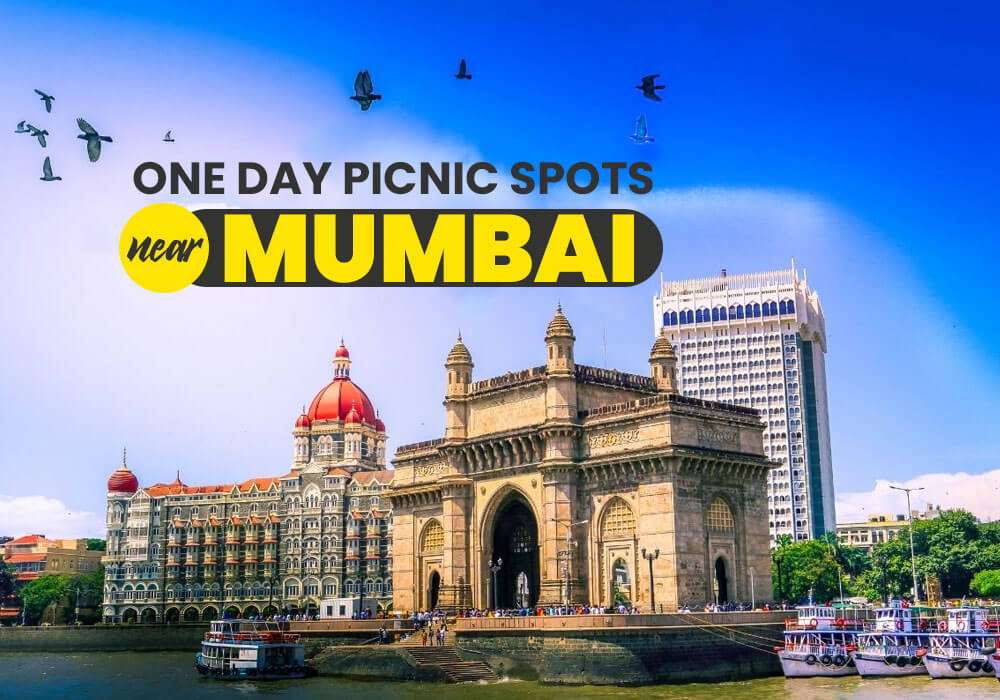
One Day Picnic Spots Near Mumbai - Monsoon, Adventure, Beach...

The Best Places to Go in Thailand in 2025


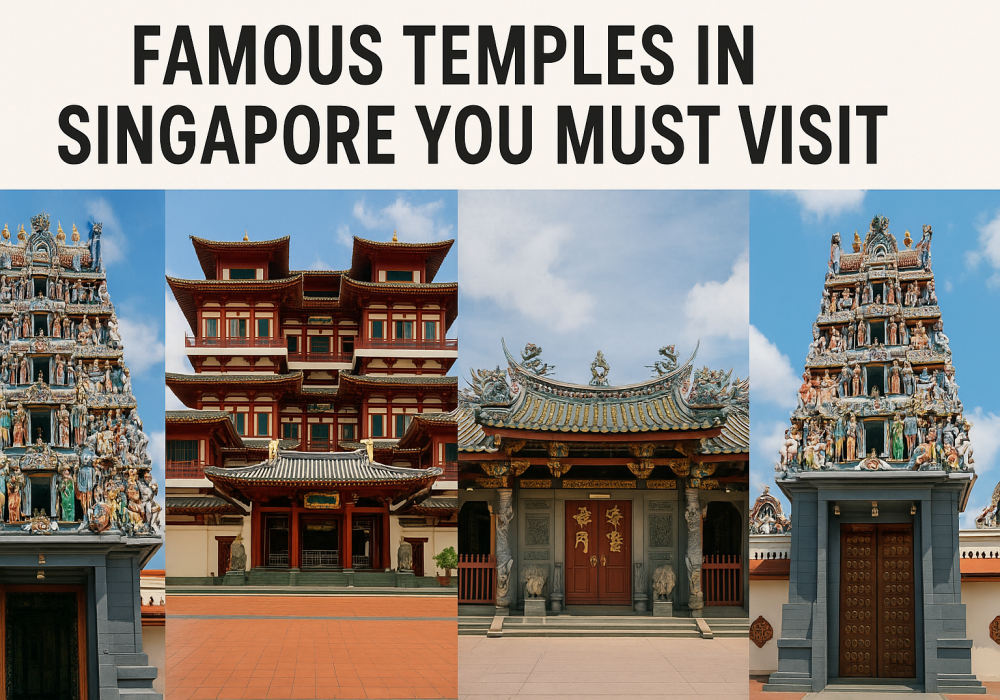
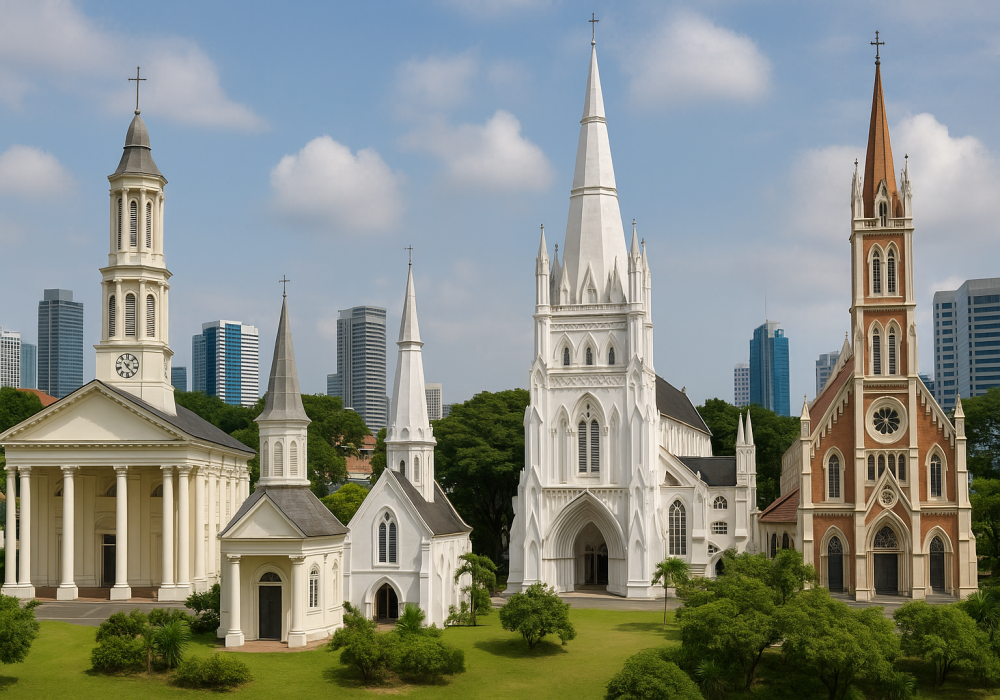
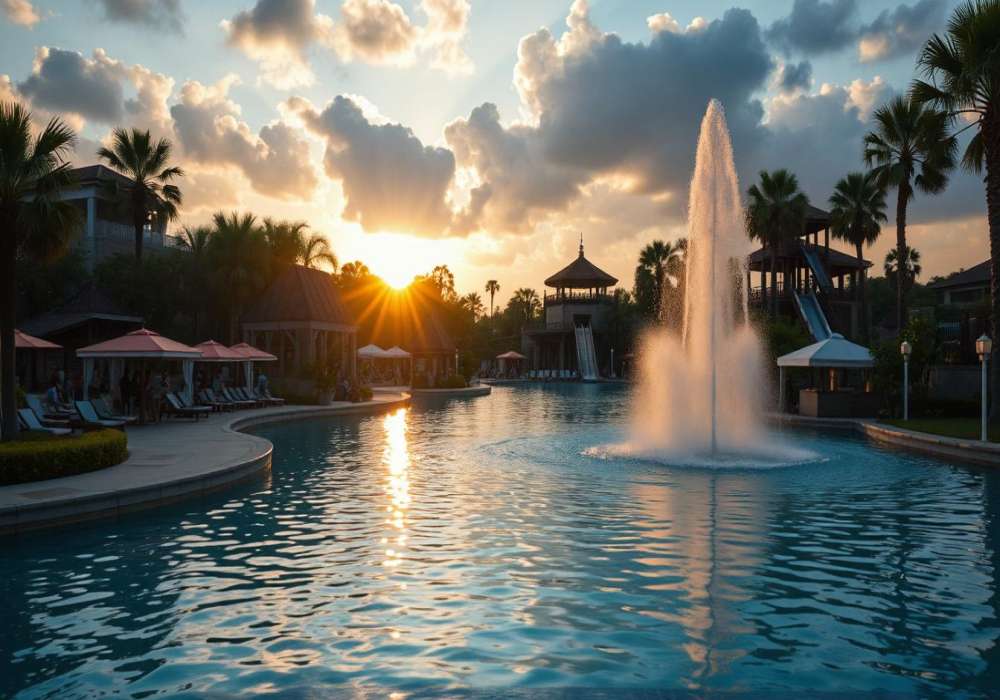
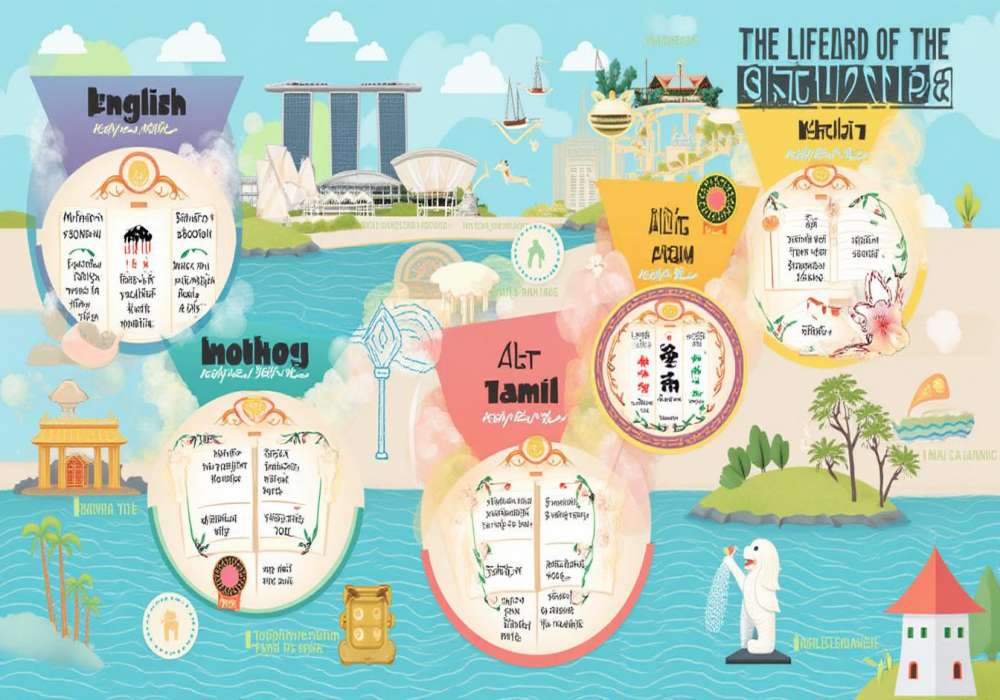
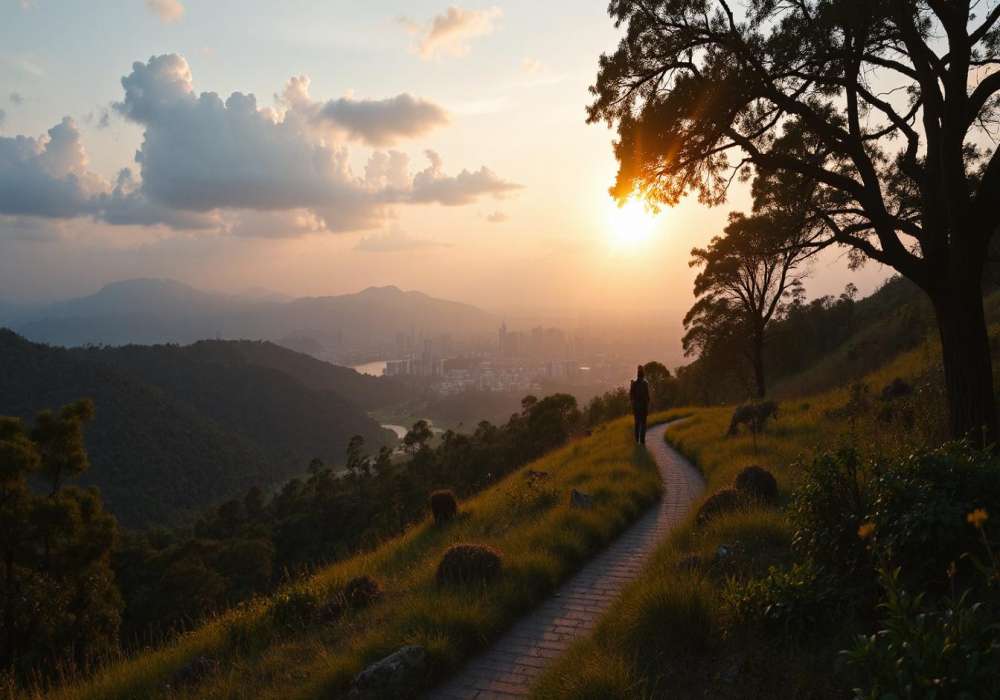
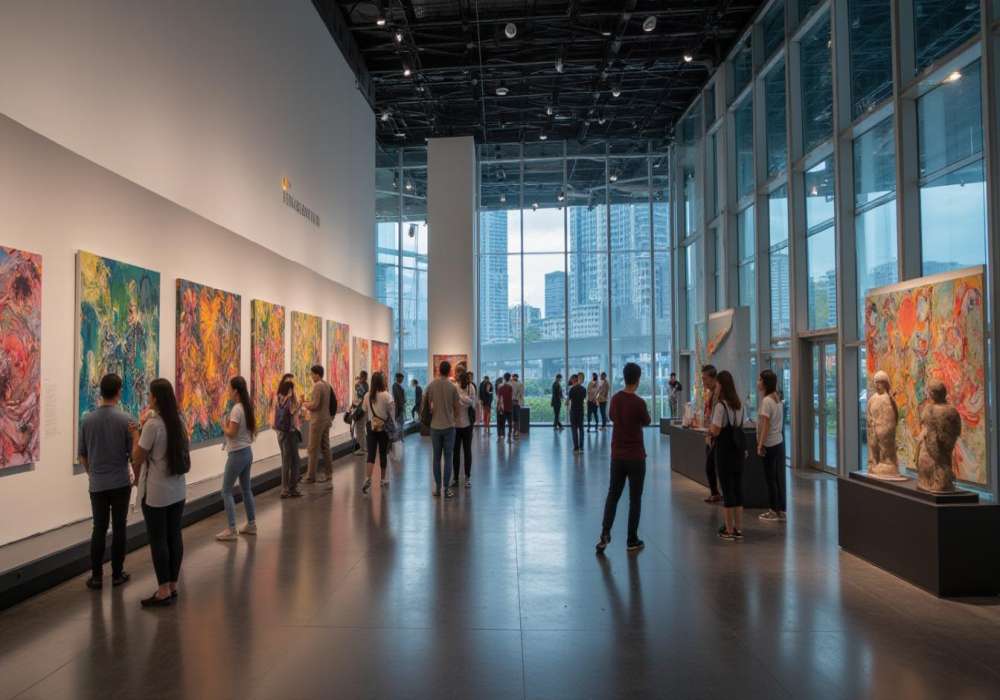



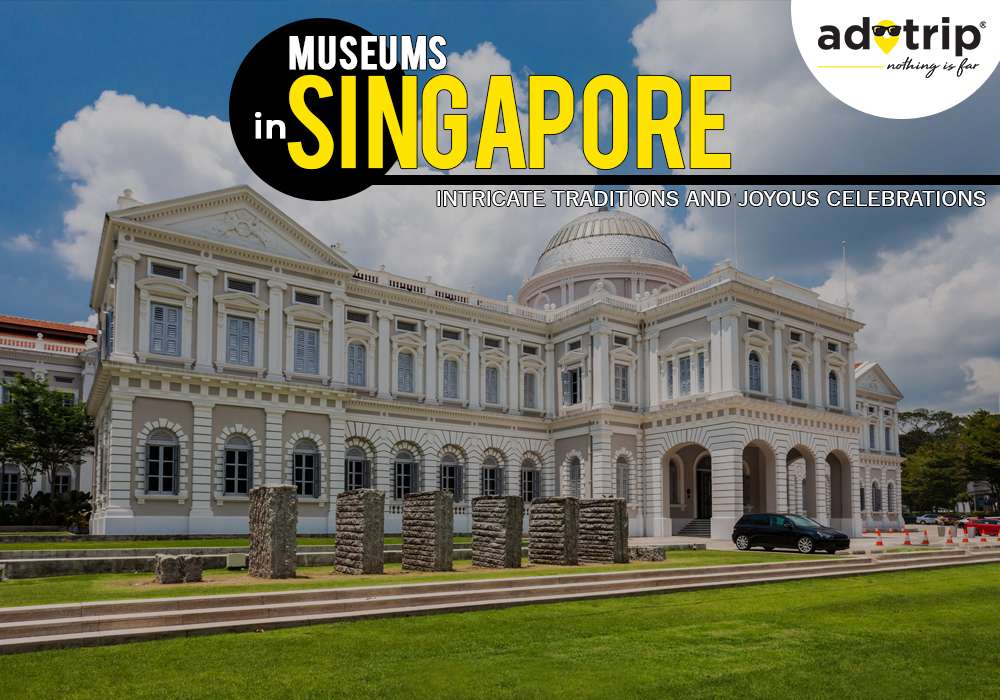

.png)
 Dubai
Dubai Malaysia
Malaysia USA
USA





